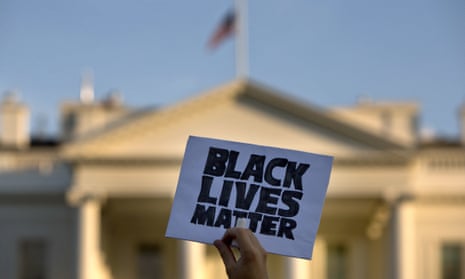Inequality is so often misunderstood as an outgrowth of cultural deficiency. But contrary to popular belief (which pervades the right, left and centre of the political spectrum), we do not live under a meritocracy. Inequality is not the result of the superior or inferior work ethics of a society’s inhabitants.
Some point to the cultural “shortcomings” of groups that remain socioeconomically immobile in order to advance the accountability narrative. This way of thinking presumes these groups should stop blaming “the system” and take accountability for their collective condition.
In the US, for the most part, it asserts that our institutions and social systems are unbiased, and that if one works hard, one is able to “succeed”. Employers of this narrative lean on the significance of “bad behaviours” to explain stifled advancement.
For example, cultural deficiency theorists might assert the reason black people are disproportionately represented in US prisons at exceedingly high degrees is because black people are committing crimes at disproportionately high rates. But a more productive assessment of this phenomenon would include an analysis and critique of the hyper-policing of black communities, the legacy of the “War on Crime” and “War on Drugs” in the development of the contemporary carceral state, and the continued hyper-sentencing of black people. All of these reflections are present in the works of Michelle Alexander (The New Jim Crow) and Angela Davis (Are Prisons Obsolete?)
Decades of research have shown that criminal courts sentence black defendants more harshly than their white counterparts. More recent studies have shown it is not uncommon for black defendants to be given twice the prison terms of whites with identical criminal histories, when they commit the same crime under identical circumstances.
Sentencing inequality is one specific way that racial bias and anti-blackness inform the lived realities and life chances of black people in a country that has marked their mere existence as deviant. This reality makes itself visible not only in our criminal justice system but in so many aspects of daily American life – yet many of us don’t notice it, because anti-blackness is usually not overt. It no longer hangs plainly on the front door of a restaurant reading “whites only”; it is cloaked in neoliberal colourblindness and post-racialism.
This reality claims that black people should dress “respectfully” to avoid being profiled by the police. It grosses $10 billon a year globally in skin-bleaching cream revenues. It points to the repressed economic conditions of black “third world” nations as an outgrowth of corrupt leadership, while thoroughly ignoring the historical, white supremacist project of colonialism and its legacy. It claimed that Tamir Rice, a 12-year-old black boy with a toy gun, looked older than he actually was – and, by default, less innocent.
In 1992, it released Soon Ja Du with no jail time after she shot Latasha Harlins, a 15-year-old black girl, in the back of the head and claimed to be acting in self defence. It enabled the judge on the case, Judge Karlin, to describe Du’s actions as “unacceptable yet understandable”. It feels no urgency about black death. It claims that if Obama can “succeed” then we all can, without acknowledging the class dimensions of racial bias as an impediment to socio-economic advancement.
Anti-blackness was the governing ideology employed with intentions to justify the pillaging and continued exploitation of African nations and peoples in the 19th century and now. Anti-blackness was foundational to the creation of America, justifying the dehumanisation, enslavement and subsequent mass caging of a people who built the economic infrastructure of the nation. Contemporary anti-black state violence is an outgrowth of these historical, political processes.
The Black Lives Matter (BLM) movement directed the public eye to this issue, during a time that so many were unwilling to engage in critical conversation about the reality of racism. Racial inequality, and more specifically anti-black racism, were rarely addressed on a national scale by public representatives prior to BLM.
The BLM movement has highlighted the structural factors of inequality, which intersect across economic, social and political features – all of which become mutually reinforcing. It has pointed to the ways that race, gender, sexuality and class oppression intersect; and it has advanced an understanding that the systems that sustain these oppressions are not mutually exclusive, but function in conjunction.
In order to address and combat the oppression of all marginalised groups, which often takes the form of economic exploitation, political powerlessness and cultural imperialism, we must be willing to address the pervasiveness of anti-blackness. Why? Because you will find anti-blackness present in nearly every mainstream movement for justice – gender justice, sexual freedom, religious freedom, immigrants’ rights.
Historically, in all of these spaces, a critique of anti-blackness has been relegated to the margin. If we claim to have intentions of transforming the world for the better, it would behoove us to begin at the margin of the margin, where Blackness meets Other.
Funmilola Fagbamila is professor of pan-African studies at Cal State Los Angeles, activist-in-residence at the Institute on Inequality and Democracy at UCLA Luskin, and a Black Lives Matter original member.
- The Guardian has launched a year-long Inequality Project. If you would like to share your experiences of inequality – wherever you live in the world and whatever your background – please fill in these questions:
